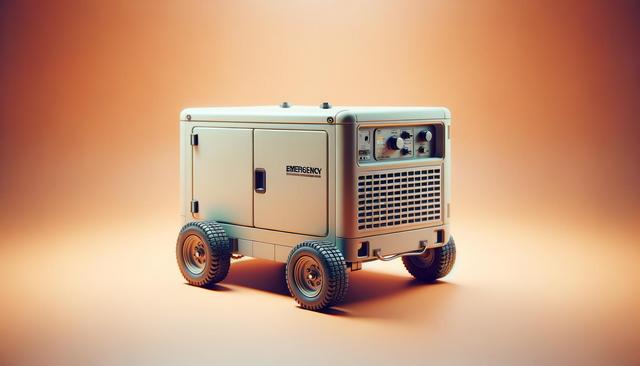Staying Prepared: A Practical Guide to Emergency Generators
When the power goes out, an emergency generator can be a reliable source of backup electricity to keep essential systems running.

Understanding the Importance of Emergency Generators
Emergency generators serve a crucial role in ensuring power continuity during outages caused by storms, accidents, or grid failures. For households, they help maintain essentials like lighting, refrigeration, and communication devices. In commercial settings, emergency generators can prevent data loss, maintain security systems, and keep operations functional, reducing downtime and financial losses. These generators are especially important in regions prone to severe weather or in industries where uninterrupted power is critical, such as healthcare and data centers.
In addition to supplying electricity, emergency generators contribute to peace of mind. Knowing that you have a backup system ready to go in times of need can alleviate stress and improve response readiness. Whether for residential or business use, choosing the right type and capacity of generator is key to effective emergency preparedness.
Types of Emergency Generators Available
Emergency generators come in various forms, each suited to different power needs and installation preferences. The two main categories are portable generators and standby generators. Portable units are typically smaller, mobile, and ideal for temporary use. They are often powered by gasoline or diesel and require manual setup when needed. On the other hand, standby generators are permanently installed and automatically activate during an outage, offering a seamless power transition.
Here are some key types of emergency generators:
- Inverter generators: Known for quiet operation and clean power, ideal for sensitive electronics.
- Diesel generators: Reliable and efficient, commonly used in commercial settings.
- Natural gas generators: Connected to a fuel line, offering convenience and lower emissions.
- Dual-fuel generators: Provide flexibility by running on two types of fuel, such as propane and gasoline.
Understanding the differences helps in selecting the right generator based on factors such as power output, fuel availability, and intended use.
Choosing the Right Generator for Your Needs
Selecting the appropriate emergency generator involves assessing your specific power requirements and the environment in which it will be used. Begin by calculating the wattage needed to run essential equipment. Appliances like refrigerators, sump pumps, and HVAC systems consume significant energy, so it’s important to prioritize what needs to stay operational during a power outage.
Consider these factors when choosing a generator:
- Power capacity: Ensure the generator can handle the combined wattage of your essential devices.
- Fuel type: Choose a fuel that is readily available and safe to store.
- Run time: Look for models that can run for extended periods without refueling.
- Noise level: Especially important in residential areas where noise regulations may apply.
- Ease of maintenance: Opt for models with accessible service parts and support.
Professional consultation can also be helpful, especially when investing in a standby generator. An electrician can help assess your home or business load requirements and recommend a suitable model and installation plan.
Installation and Safety Considerations
Proper installation of an emergency generator is essential for safety and efficiency. For standby generators, installation must comply with local building codes and often requires permits. These systems are usually connected directly to a home or building’s electrical panel and integrated with an automatic transfer switch, which detects power loss and activates the generator within seconds.
Safety tips for generator use include:
- Never run a generator indoors or in enclosed spaces to avoid carbon monoxide poisoning.
- Use appropriate extension cords rated for outdoor use and high wattage.
- Keep the generator dry and protected from rain or snow.
- Regularly test and maintain the generator to ensure it’s operational when needed.
- Store fuel safely and away from living areas or heat sources.
Hiring a licensed professional for installation is highly recommended to ensure all electrical components are safely connected and the system functions as intended.
Maintenance and Long-Term Care
To ensure consistent performance, emergency generators require regular maintenance. Routine checks can prevent mechanical issues and prolong the life of the equipment. Maintenance tasks vary depending on the generator type and frequency of use, but most involve inspecting fuel levels, oil quality, air filters, and battery charge.
Key maintenance practices include:
- Running the generator monthly to keep internal components lubricated.
- Changing the oil and filters according to the manufacturer’s schedule.
- Inspecting spark plugs, belts, and wiring for signs of wear.
- Keeping the generator clean and removing debris from vents and exhausts.
- Scheduling annual professional inspections for comprehensive checks.
Keeping a maintenance log is also helpful to track service intervals and identify potential issues early. Investing time in upkeep ensures your emergency generator is ready to deliver power when it matters most.